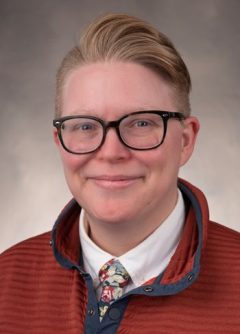Reporter Ashley Mowreader talked with Assistant Provost Peter Felten and Emily Krechel, director of new student programs, for the podcast episode.
The latest episode of Inside Higher Ed’s Voices of Student Success podcast features the work Elon is doing to promote meaningful relationships on campus and how those relationships can help students thrive and engage.


Reporter Ashley Mowreader talked with Assistant Provost Peter Felten, who serves as executive director of the Center for Engaged Learning, and Director of New Student Programs Emily Krechel, both of whom served on the university’s Mentoring Initiatives Design Team. During the 2023-24 academic year, the team supported eight pilot programs around mentoring and meaningful relationships and hosted an inaugural mentoring summit at Elon during the summer.
Krechel told Mowreader that the sooner institutions can help students develop personal connections not just with peers but also with faculty and staff, the better they are going to adjust to college. “What we’ve noticed is that, when students start to form relationships early, they’ve discovered they have a greater connection, not just to the institution, but to the environment that they’re within. They feel a part of the community,” Krechel said. “I know different people have different feelings around the term “sense of belonging,” but really it’s that sense of connection that helps students feel like, “I can thrive here.”
Felten explained that a key barrier, particularly among first-generation students, is the sense among new students that everyone else has it figured out and they are the only ones struggling. “I think one of the things we need to do—whether it’s through an orientation like Emily coordinates at Elon for residential students, or it’s at a community college where none of the students live on campus—is help students recognize that it’s normal, it’s regular to have questions, to have doubts, to have concerns, and that successful students have appropriate help-seeking behaviors,” Felten said. “Successful students take the risk to connect with a peer and say hi to somebody or something like that. That’s not a sign that you’re doing it wrong. That’s a sign that you’re going to be successful.”
Listen to the full podcast episode to learn more.


